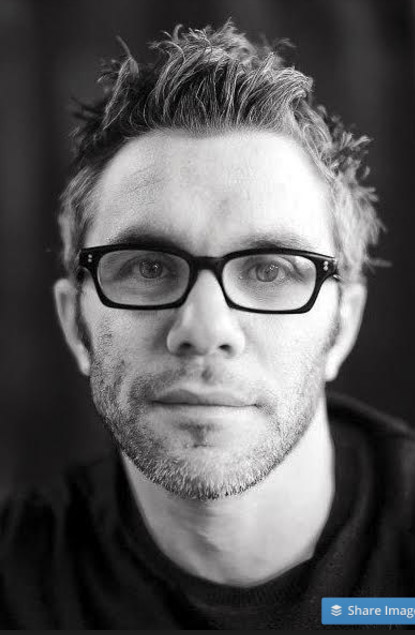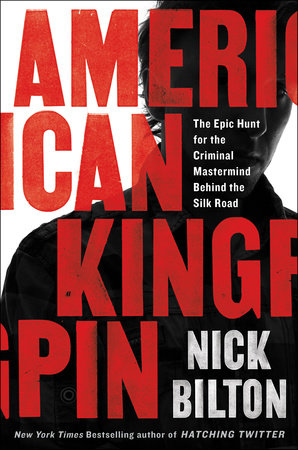Five Questions for Nick Bilton
In October 2013, FBI agents descended on a small, unassuming branch library in southern San Francisco and arrested a young man working on his Samsung laptop. As improbable as it seemed at the time, he would be tried and convicted as one of the biggest drug kingpins in American history.

Nick Bilton, author of “American Kingpin”: “Every time a new thing happens with technology, it’s here forever.”
At the ripe age of 26, Ross Ulbricht, a libertarian and self-taught coder, had singlehandedly developed what became the Silk Road, a “dark web” marketplace for drugs, along with guns, hacking tools, and even poison, that generated $1.2 billion in revenue.
Ulbricht’s story is the subject of a new book, “American Kingpin: The Epic Hunt for the Criminal Mastermind Behind the Silk Road,” by Nick Bilton, a special correspondent for Vanity Fair and a former columnist for The New York Times. (As it happens, Bilton lived in San Francisco and used to walk his dog past the library where Ulbricht was caught.)
The book reads like a thriller, but it raises a host of larger questions. What brings a young, privileged man to a point where he is facilitating the sale of lethal weapons? Is Ulbricht’s life sentence — his appeal was denied in May — a fair penalty for his crimes? And do the rise and fall of the Silk Road hold lessons about the way business is done in Silicon Valley?
For this installment of the Undark Five, I asked him about those and other questions. Our conversation has been lightly edited and condensed for clarity.
UNDARK — The Silk Road was shut down in October 2013, and since then a slew of other similar sites have sprung up to replace it. Will “dark web” marketplaces for drugs ever be fully eliminated?
NICK BILTON — Every time a new thing happens with technology, it’s here forever. The question is, how is it going to morph over time? As soon as they shut the Silk Road down, there was another one and then more and more and more, and now there are dozens of them. Some of them are in China and Russia, and as a result they’re unstoppable because the U.S. government can’t go after them there.
In the show “Narcos,” you see that someone decided they were going to fly cocaine into the U.S., and all of a sudden, we have cocaine. And that ain’t going away. The same is true for any technology, any vice. It is so rare that society rejects something, especially something like this. Yes, they’re going to keep looking and dragging these things down, but it triggered a new era of drugs coming into the United States. Fentanyl, for instance, has now has become so big it’s killing thousands and thousands of people. All these things are happening simultaneously and not in a vacuum.
UD — Ross, a libertarian, wanted to change the world by removing governmental regulations –– and believed that the Silk Road would be for the good of humanity by giving people the power to choose what substances to put into their own bodies. It had this Silicon Valley startup-y mantra. If Ross hadn’t created it, could it have been somebody else?
NB — It absolutely could have. Ross was one of several people thinking about this idea of building such a website. He had the first-mover advantage. And it’s one thing to send a single pink pill of ecstasy in the mail. It’s another thing to send a Glock 9mm. It scared a lot of people. But it also kind of emboldened a lot of people to say, “Oh, well, if they’re doing this and they’re not getting caught, then why not sell this?”

UD — Are there parallels between Ross Ulbricht and other CEOs of big tech companies?
NB — What drove Ross to start this site was the same thing that drove Travis Kalanick to start Uber and a myriad of other folks to start their companies in Silicon Valley. They believed that the system was broken, that government regulation was broken, and that the consumer was being screwed as a result. In every instance, they are correct. The execution of it is sometimes the thing that makes people scratch their heads — and the aggression with which they are willing to protect their company at any cost whatsoever. That’s something I’ve seen with every company that I’ve covered.
UD — How fast did the Silk Road grow? Can you put it in context of other tech startups?
NB — The thing that’s different with the Silk Road was that it grew that fast from almost the beginning, whereas other companies almost always start slow, and then once they hit a velocity, they shoot up. Someone who was also reporting on the Silk Road said that if it had been a traditional company in Silicon Valley, it would have been the most profitable, most successful startup in history because of the amount of money it was making in such a short period of time and the number of people who were using it.
UD — What do you make of the Free Ross crowd, who insist Ulbricht is innocent?
NB — Look at the number of people in prison who are African-American and Hispanic. They might have been drug dealers or ran a small series of drug dealers that oversaw a street corner of whatever. You don’t hear people protesting and coming to their defense.
You can agree with the judge’s sentencing or you can disagree. But the part where I do agree is that she essentially said, “You come into my court and you say, ‘Well, I had this thing that I was doing, this marketplace,’ and because you’re behind a computer, you get a privileged argument, and no one from the Bronx would ever try to make that argument.”
I do feel terrible for Ross’s family and can’t even imagine or comprehend what they’re going through. But I do wish that the folks supporting Ross would also support some other people who have been harmed as a result of harsh drug laws. Some of these people didn’t have a choice. Ross did.
Hope Reese is a staff writer for TechRepublic, a division of CBS Interactive. She covers the intersection of technology and society, focusing on AI, robotics, and driverless cars.











Comments are automatically closed one year after article publication. Archived comments are below.
Just read this article today and I am just speechless which, is unusually uncharacteristic however, I feel really bad for Ross Ulbricht and that he totally got railroaded. How can our court system charge him when there wasn’t any laws to begin with?? Evidence not brought forth for his defense with the FBI informant & SS Agent that both were stealing? Anyways, the questions are still unanswered or better yet, make no sense and I don’t consider myself very smart in computer technologies ect. We have all heard the situation where someone says, “if it were me that Got caught they’d put me in jail & would make me the example”….BUT this case doesn’t fit the punishment!! I’m confused but most of all very truly scared that our so called justice system can get away this “draconian” laws. Yes, he deserves punishment then the law(s) written..published..and folks were then aware that if you do this THEN the punishment(s) and/or fine(s) and/or mail time be…it’s all ass backwards.